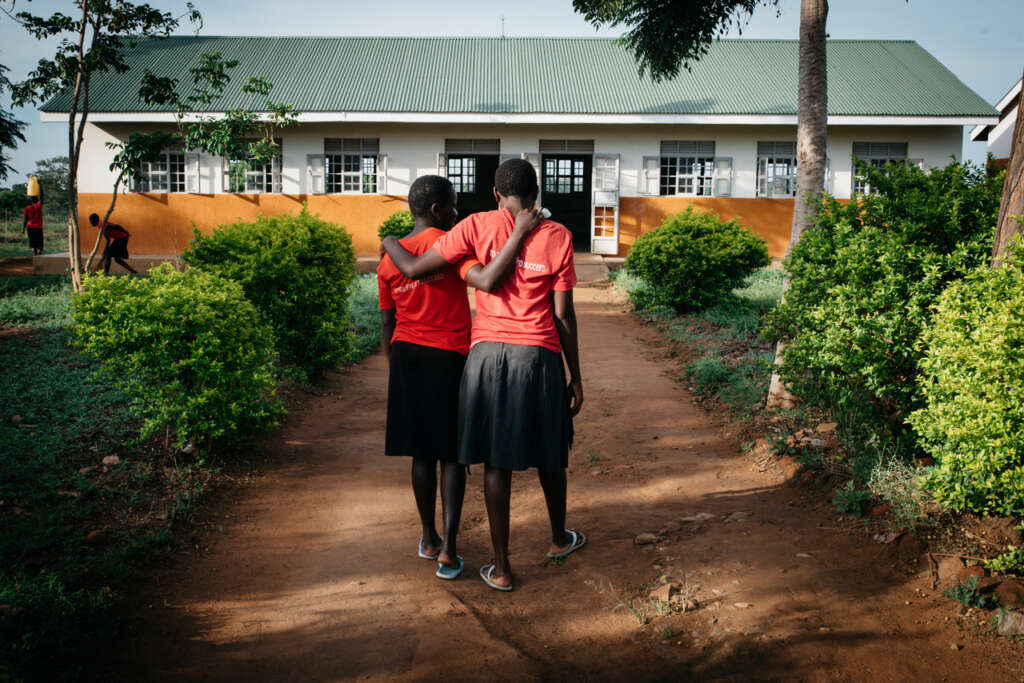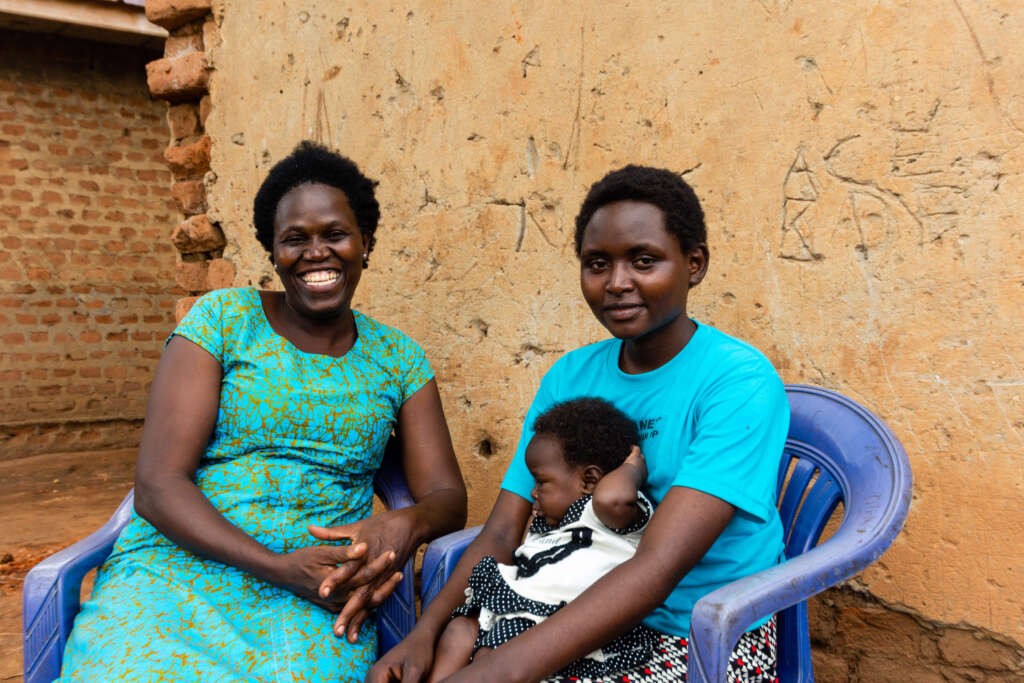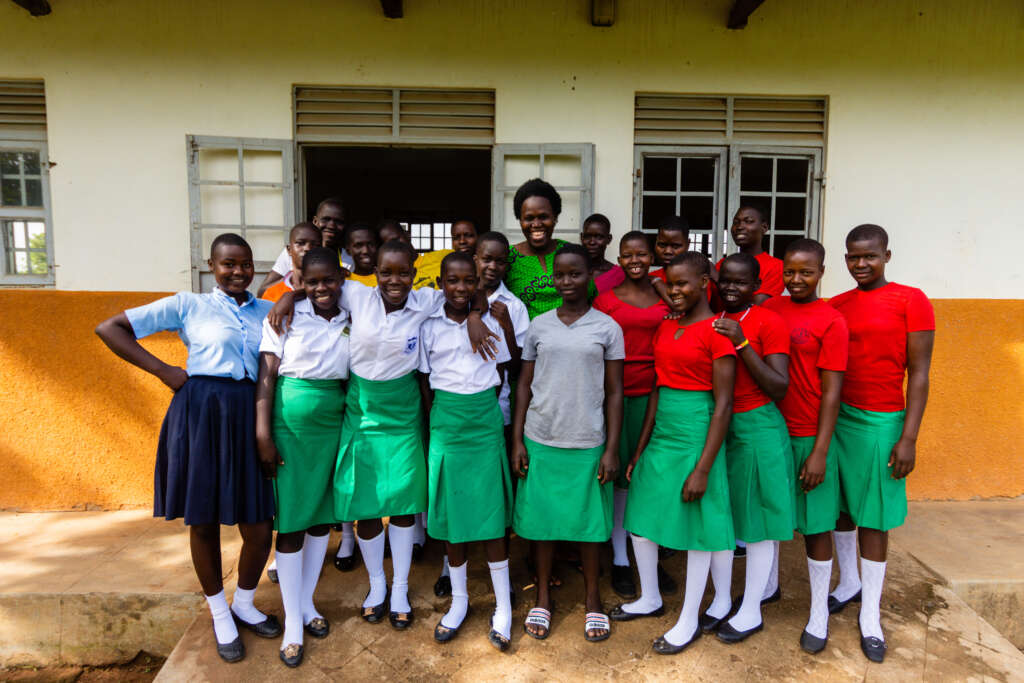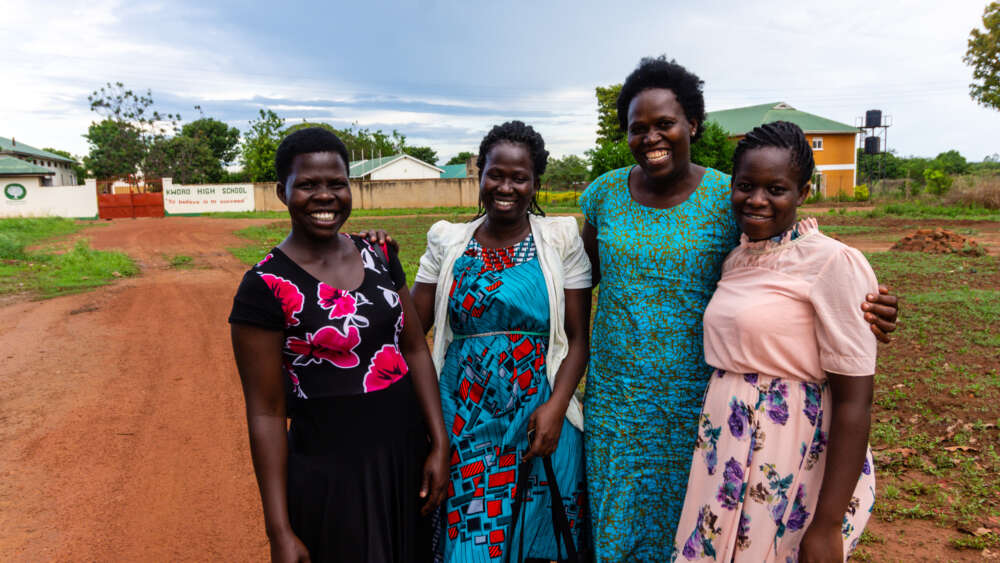There has been almost a doubling of early marriages and teenage pregnancies in northern Uganda since the COVID pandemic began, according to Alice Achan, Executive Director of Te-Kworo Foundation, which she founded in 2002 to educate and rehabilitate girls abducted and enslaved by the Lord’s Resistance Army (LRA).
With schools closed for four months since the imposition of a second lockdown in June 2021, she says poverty and lack of support have driven many girls into casual labour and made them vulnerable to sexual abuse.
“The schools are closed. The public markets where people go and sell goods, especially agricultural products, are closed. Farm activity is very limited. If people grow food, they are not able to sell it into another district. And yet selling and buying agricultural goods and products between the districts is very important in cashflow for a local community. This is not happening now, which is why there is overwhelming poverty in the community,” she says.
Many families who would sell food to schools in large quantities are no longer able to do so, which has had a devastating effect on the community “and because of that, a lot of girls are now resorting to casual labour, a lot of them are reduced to commercial sexual activities for survival.”
The dramatic increase in early marriages and teenage pregnancy has taken it to a level even worse than that seen during the civil war 15 years ago when the LRA systematically abducted girls to be sex slaves of their soldiers, she claims.
“These are young girls who are totally on their own, with no education, with no skills and no support from the teachers and health workers. So we have really seen teenage pregnancy and early marriage more than even during the war itself.”
As related by Eternity here, Alice was forced out of school during the civil war and only completed secondary school in her mid-20s. After training in social work, she founded Kworo Pader High School, a boarding school for girls, in 2008, and Nwoya Girls Academy in 2015. Alice could see how crucial education was for “child brides” who had been abducted by the LRA and who often returned from conflict with babies, only to be shunned by their families. She has told her remarkable story in The School of Restoration.

Two students outside Kworo Pader High School, a boarding school for girls in Uganda
Despite the suspension of girls’ education, Alice and her team continue to run a maternal health facility that also provides outreach in remote communities. However, Alice reports that she and her staff are finding demands on the health centre overwhelming.
“We are overwhelmed with medical referrals to professionals, medical doctors, especially gynaecologists and paediatricians because we don’t have specialists at our facilities,” she explains.
“So we are faced with an overwhelming number of referrals to major hospitals. We are far away from the main cities and we have to drive between two to three hours to get to the best hospital.”
This lack of public transport and lack of access to quality local health care services add to the costs of running the clinic, but her team is bravely soldiering on.
“It’s really overwhelming being a local organisation that depends on donations and support from international partners and friends. And the fact that we live in a community that is desperate, who are living surrounded by poverty.
“We are carrying the burden of this community on us by providing these extraordinary services so they can survive. So it’s kind of overwhelming for us at the moment.”
Alice says her budget has been hit by a doubling of expenditures on maternal and child health responses and referrals.
Te Kworo’s two schools began a phased opening last October but had to close again in May after the arrival of just two year groups.
“So now we have girls back at home, without education. We tried to make some follow-up for some girls and, honestly, most of them are not with their parents. They had to move to live with their aunties or relatives, but things are not easy there. And most of them are turned back to their parents when pregnancy comes.”
With schools due to reopen in January 2022, the Te Kworo Foundation is launching a program to connect with 300 girls in remote areas, taking supplies of food and learning materials to keep them going.
“About 50 per cent will have babies. That will mean extra costs for the school.” – Alice Chan
The foundation, which has a local arm in Australia, is also launching a campaign to fund 100 full scholarships and 100 half-scholarships for new students, who will join the existing students when schools return in the new year.
“As soon as the school opens, the majority of them will need financial support to go back to school. And about 50 per cent will have babies. That will mean extra costs for this school, and for the teachers and daycare workers, so we will need additional and increased funding,” says Alice.
“Our appeal is to our friends and families at the strategic level because this pandemic has hit more than the conflict ever before because we don’t have income. This is really a big challenge to us.
“Remember, most of our community, especially the parents of our students, have literally never gone to school. So they’re finding it difficult to deal with their daughters, particularly those who have special needs, who need special attention, the way the teachers and the senior managers were able to give them that comprehensive support.”

Alice, left, with Betty, who returned to school last October seven months pregnant. She finished her Year 10 exams a month after the baby was born.
Alice says, however, that the girls she has been in touch with are eager to return to school.
“We have been doing radio talk shows because most of our students don’t have internet. And they tell us, ‘we are in a difficult situation, but we are hopeful that we can return.’ Even the parents, and the local leadership, know this is the hope for the next generation in Africa.
“So this gives me a lot of courage and we will continue leading and working with partners. Even if the lockdown is there, there is a will and hope coming.”

Alice outside a classroom with a group of students.
Alice says she receives no support from the government other than some learning materials for the students and skills development training of the teachers. But, as a faithful Christian, she is thankful for many things.
“Even if it is in the hard days, we are so grateful to the Lord. We are grateful for our friends, especially our friends in Australia, who have never left us.
“Also, apart from two of our midwives who contracted COVID, we’ve never encountered a major challenge with the COVID pandemic within our facility. That is something which is amazing. And I want to celebrate and thank God for that. And my team, they have been so great. They’ve been a great support to me as the leader, but also to their own community.”
Alice says fundraising is focused at the moment on efforts to build an operating theatre and a blood bank – which is required to treat malaria – to minimise referrals to hospitals. After that, they hope to recruit gynaecologists and other specialists for the facility.
But there are also ways that people can help just supporting safe births, which costs just $60 to have a baby safely in the clinic.
You can support a Ugandan girl’s education or maternal health here.


